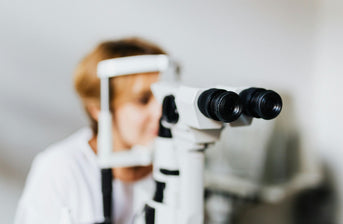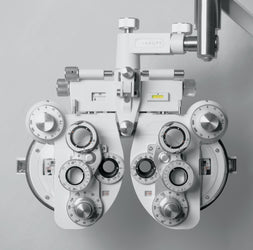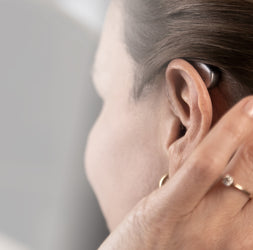Prioritise Hygiene
With some care, eye infections and other diseases can be prevented. Avoid touching your eyes with dirty hands, and
refrain from rubbing them when you have a cold or hay fever. Wash your hands regularly and, if you wear
contact lenses,
ensure your hands are clean before putting them in and taking them out. If you wear
glasses, remember to clean them regularly, frames
included.
Protect your Eyes from the Sun
Exposing your eyes to the sun without the necessary protection can cause permanent damage to your sight. This is why our
opticians always recommend to protect your eyes by wearing
sunglasses. You might not know it, but not all
sunglasses offer the right protection. You should always ensure that your sunglasses lenses are made specifically to
block out UV-A and UV-B radiations. If you are in doubt which lenses you should choose, ask your optician.
Keep your Prescription Up-to-date
Outdated prescriptions put more strain on your eyes, causing unnecessary pain and damage. If you experience eye fatigue,
headaches and blurry vision, it’s definitely time to update your prescription and change your glasses. Even when your
vision seems still clear, you should never postpone your next eye test. Visiting your optician regularly is the only way
to ensure that your eyes are still healthy.
Have Regular Eye Examinations
Besides checking potential prescription changes, an
eye
test can help detect severe eye conditions (such as
glaucoma and diabetic retinopathy) at their
earliest stage – when they're easier to treat. In fact, many sight-threatening eye conditions do not show symptoms at
all in their early stages, and you might not notice that there is a problem with your eyes. Unless otherwise specified
by your optician, you should have an eye test every two years.
Follow a Healthy Diet
Following a balanced diet is crucial to keep your eyes in good health. Vegetables rich in beta-carotene, such as carrots
and pumpkins, and greens (e.g. kale, spinach), which are a rich source of lutein and zeaxanthin, are known to reduce the
risk of developing eye health problems. Foods containing Omega-3 are also extremely beneficial. These include walnuts
and certain fish, such as salmon, tuna, and mackerel.
Remember the 20-20-20 Rule
If you spend a long time in front of a screen such as computers, tablets and mobile phones, your eyes can get really
tired. Our opticians recommend to follow the 20-20-20 rule: every 20 minutes, look away about 20 feet in front of you
for 20 seconds. Taking regular breaks from digital devices will help reducing eye strain and can prevent dry eye
syndrome. You can also try
HOYA
Sync III lenses for the best protection from screen blue light.
Sleep Enough
Lack of sleep prevents your eyes from getting enough circulation of fluid, which is essential to their optimal
functioning. This is why lack of sleep makes your eyes dry and tired. Another problem associated with sleep deprivation
is the formation of dark circles and eye bags, which results from an increased retention of blood and fluid in the area
around the eyes. To stay and look healthy, ensure you give your eyes enough sleep every day.
Ask your Optician
If you are in doubt with anything concerning your eyes, eye care, or eye care products, speaking to an expert is always
the right choice. You can call or visit your local
Eye
Emporium practice and our staff will be pleased to assist you with any question or concern you may
have.








